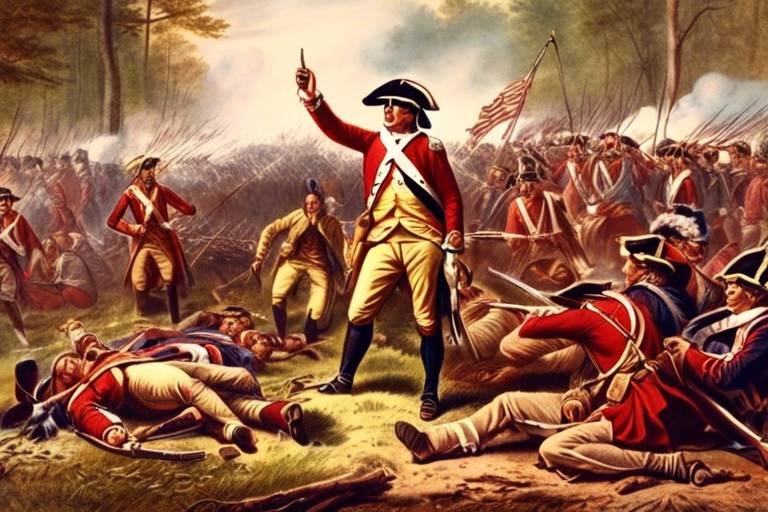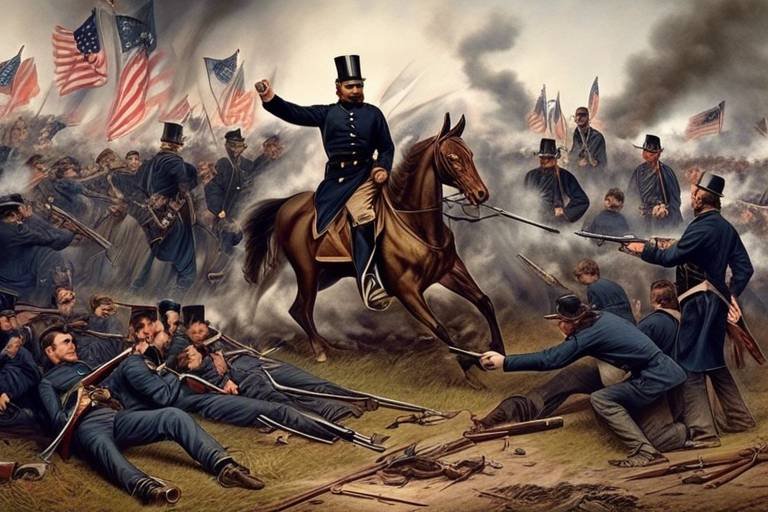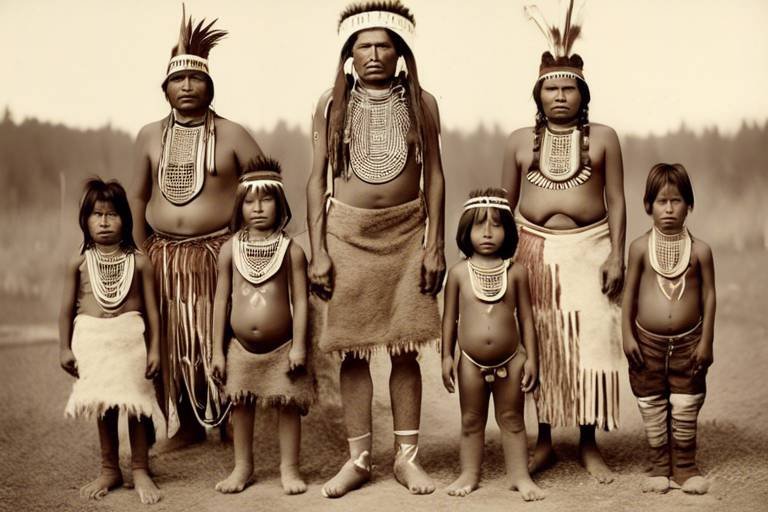The Vietnam War - A Controversial Conflict
When delving into the tumultuous history of the Vietnam War, one cannot help but be drawn into a web of complexities and controversies that have left an indelible mark on the fabric of society. This conflict, which unfolded in the heart of Southeast Asia, not only altered the course of history but also ignited fierce debates about politics, ethics, and the very nature of warfare.

Causes of the Vietnam War
The Vietnam War was a complex and multifaceted conflict that stemmed from a combination of historical, political, and ideological factors. One of the primary causes of the war was the legacy of colonialism in Vietnam. For decades, Vietnam had been under French colonial rule, and the desire for independence and self-determination fueled nationalist movements in the region.
Additionally, the Cold War rivalry between the United States and the Soviet Union played a significant role in the escalation of the conflict. As the Cold War intensified, Vietnam became a battleground for competing ideologies, with the United States supporting the anti-communist government in South Vietnam, while North Vietnam received backing from communist allies.
The division of Vietnam into North and South following the Geneva Accords in 1954 further deepened tensions, leading to a power struggle between the communist forces of Ho Chi Minh's Viet Minh in the North and the pro-Western government of Ngo Dinh Diem in the South.
The domino theory, a key concept in Cold War politics, also influenced US involvement in Vietnam. The fear that the fall of one country to communism would lead to the collapse of neighboring states prompted the United States to intervene in an effort to contain the spread of communism in Southeast Asia.
Moreover, the Gulf of Tonkin incident in 1964, where North Vietnamese forces allegedly attacked US naval vessels, provided a justification for increased American military involvement in Vietnam. This event marked a turning point in the conflict, as it led to the escalation of US military operations and the eventual deployment of ground troops.

Key Players and Strategies
When delving into the complexities of the Vietnam War, it is essential to understand the key players and strategies that shaped this controversial conflict. At the forefront were the United States, with its aim to contain the spread of communism, and North Vietnam, fighting for reunification under a communist regime. South Vietnam, supported by the U.S., stood in opposition to the communist forces. The Viet Cong, a guerilla force aligned with North Vietnam, utilized unconventional tactics to combat their more powerful adversaries.
One of the defining strategies of the Vietnam War was the widespread use of guerrilla warfare by the Viet Cong, blending in with the civilian population and launching surprise attacks on American and South Vietnamese forces. The United States, on the other hand, relied heavily on conventional military tactics, including aerial bombardment and search-and-destroy missions. The conflict also saw the deployment of chemical weapons, such as Agent Orange, with devastating long-term consequences for both the environment and human health.
Furthermore, the Vietnam War witnessed a significant escalation of military technology, with the U.S. introducing advanced weaponry and tactics, such as helicopter warfare and electronic surveillance, to gain an upper hand in the conflict. However, despite these advancements, the rugged terrain and resilience of the Vietnamese forces posed formidable challenges to the American military.

Impact on Vietnamese Society
The Vietnam War had a profound impact on Vietnamese society, leaving deep scars that are still felt today. The conflict resulted in widespread devastation, with villages destroyed, farmland poisoned, and families torn apart. The civilian population in both North and South Vietnam endured unimaginable suffering, facing constant fear and uncertainty as the war raged on.
Many Vietnamese were forced to flee their homes, becoming refugees in their own country or seeking asylum abroad. The social fabric of Vietnamese communities was shattered, traditional values disrupted, and generations traumatized by the horrors of war. The war not only claimed countless lives but also left a legacy of physical and psychological wounds that continue to affect individuals and families.
In addition to the immediate impact on Vietnamese society, the war also had long-lasting consequences. The division between North and South Vietnam created lasting rifts that have been difficult to heal. The post-war period saw economic challenges, political instability, and social dislocation as the country struggled to rebuild and reconcile its past.
Furthermore, the Vietnam War left a legacy of unexploded ordnance and environmental damage, posing ongoing threats to public health and safety. The use of chemical defoliants like Agent Orange has had lasting effects on the environment and the health of Vietnamese civilians, leading to high rates of birth defects and chronic illnesses.
Despite the challenges and trauma inflicted by the war, the resilience and spirit of the Vietnamese people have been remarkable. Efforts towards reconciliation and healing have been made, with initiatives to address the legacies of war, support victims, and promote peace and understanding among all those affected by the conflict.

American Anti-War Movement
The during the Vietnam War was a powerful force that challenged the government's policies and reshaped public opinion. It was a time of intense social and cultural upheaval as Americans grappled with the moral implications of their country's involvement in a distant conflict.
Protests against the war escalated across the nation, with millions taking to the streets to voice their opposition. These demonstrations were not just about politics; they were a cry for peace, a demand for change, and a plea for humanity in the face of violence and destruction.
One of the most significant aspects of the anti-war movement was the draft resistance, where young men refused to serve in the military as a form of protest against the war. This act of civil disobedience sparked debates about patriotism, duty, and the right to dissent in a democratic society.
The cultural landscape of the United States also underwent a profound transformation during this period. Artists, musicians, and writers used their platforms to criticize the war and advocate for peace. Songs like "Give Peace a Chance" by John Lennon and "Fortunate Son" by Creedence Clearwater Revival became anthems of the anti-war movement, resonating with a generation disillusioned by the conflict.
Furthermore, the anti-war movement played a crucial role in shaping the media coverage of the Vietnam War. Journalists and photographers risked their lives to bring the harsh realities of the war to the American public, challenging the official narratives and exposing the human cost of the conflict.
In conclusion, the American Anti-War Movement was a pivotal moment in U.S. history, highlighting the power of grassroots activism, the importance of dissent in a democracy, and the enduring legacy of those who stood up against injustice and violence.
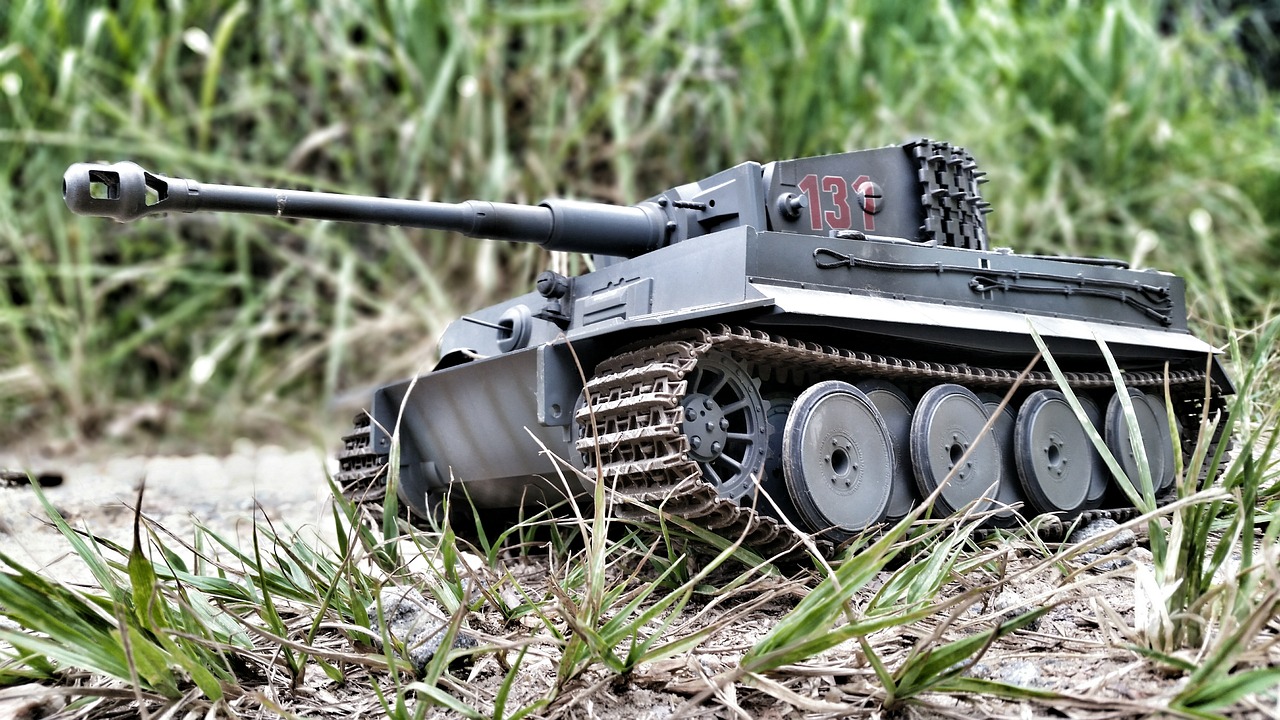
Media Coverage and Public Opinion
During the Vietnam War, media coverage played a pivotal role in shaping public opinion and influencing the course of the conflict. Journalists embedded with troops provided firsthand accounts of the brutal realities of war, bringing graphic images and stories of the battlefield into living rooms across America. The power of television brought the war directly into people's homes, sparking debates and protests as viewers witnessed the human cost of the conflict.
Iconic images, such as the Pulitzer Prize-winning photograph of the young girl running naked from a napalm attack, seared into the collective consciousness, challenging the narrative of a noble cause and exposing the harsh truths of warfare. The media's coverage of the Vietnam War fueled anti-war sentiment, galvanizing a growing movement of dissent and resistance against government policies.
Investigative journalism also played a crucial role in uncovering the realities of the war, from the My Lai massacre to the Pentagon Papers, exposing government deception and misconduct. These revelations further eroded public trust in official narratives and fueled skepticism towards military interventions.
Public opinion towards the Vietnam War shifted dramatically under the influence of media coverage, with a once largely supportive population becoming increasingly critical and disillusioned. The war became a divisive issue, tearing at the fabric of American society and challenging traditional notions of patriotism and duty.
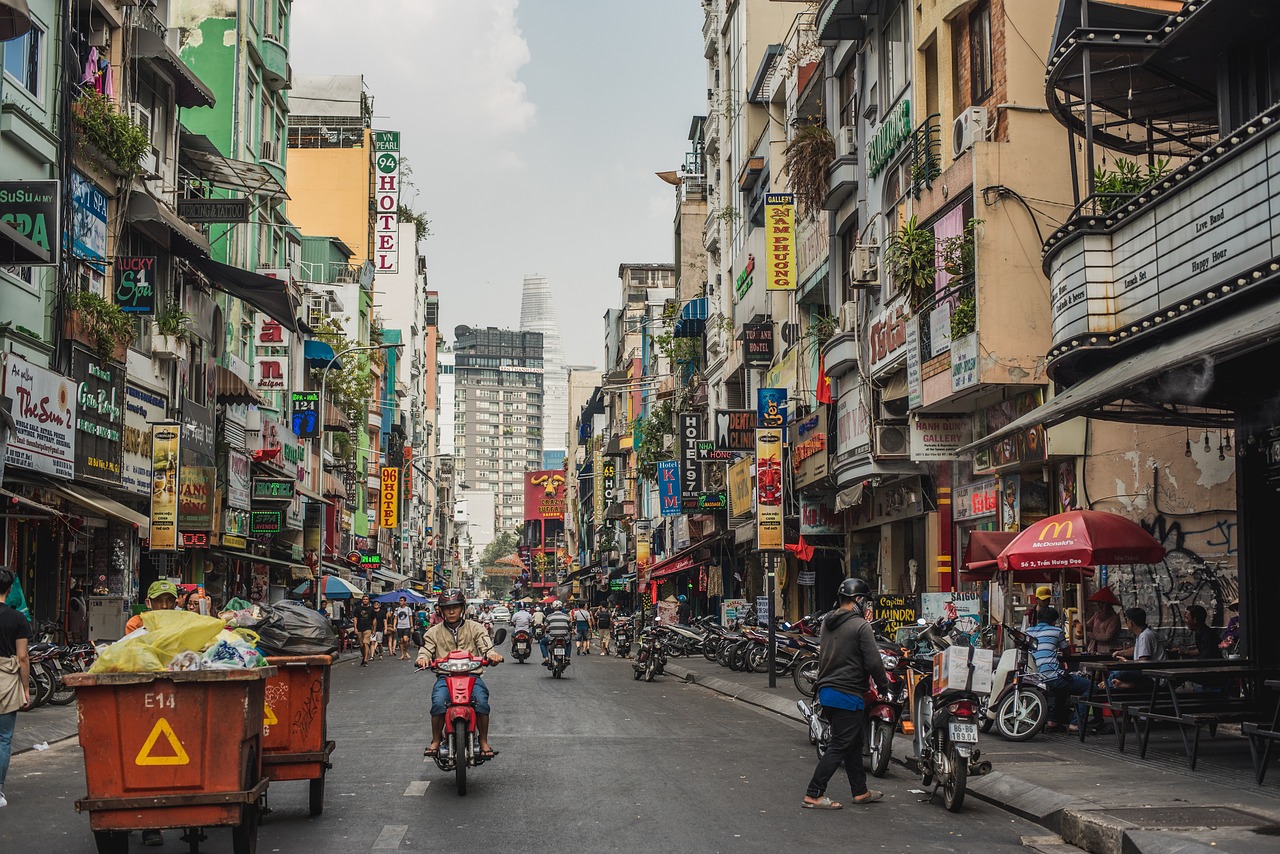
Legacy of the Vietnam War
The legacy of the Vietnam War is a complex tapestry woven with threads of political, social, and cultural significance. This conflict, which raged on for years, left an indelible mark on the world stage, shaping the course of history in ways that continue to reverberate to this day. As the dust settled and the echoes of gunfire faded, the aftermath of the war revealed a landscape scarred by the human cost of conflict and the geopolitical ramifications of intervention.
One of the most profound legacies of the Vietnam War is its impact on foreign policy, both for the United States and other nations involved in the conflict. The war served as a cautionary tale, highlighting the dangers of entanglement in distant conflicts and the limitations of military power in achieving political objectives. The lessons learned from Vietnam reshaped diplomatic strategies and influenced decision-making in subsequent international crises.
For the veterans who fought in the jungles of Vietnam, the legacy of the war is deeply personal. Many returned home bearing physical and emotional scars, struggling to reintegrate into a society that often failed to understand their experiences. The Vietnam War challenged traditional notions of heroism and sacrifice, forcing a reevaluation of the treatment of returning servicemen and women and sparking conversations about the long-term effects of combat trauma.
Moreover, the memory of the Vietnam War continues to permeate popular culture, shaping narratives in literature, film, and art. From iconic movies like "Apocalypse Now" to bestselling novels like "The Things They Carried," the war has inspired a wealth of creative works that seek to capture the complexity and tragedy of the conflict. These cultural representations serve as a reminder of the enduring impact of the Vietnam War on the collective consciousness.
Despite the passage of time, the legacy of the Vietnam War remains a subject of debate and reflection. As new generations grapple with the lessons of history, questions of accountability, justice, and reconciliation continue to resonate. The enduring legacy of the Vietnam War serves as a testament to the enduring power of memory and the imperative of understanding the past to navigate the challenges of the present and future.
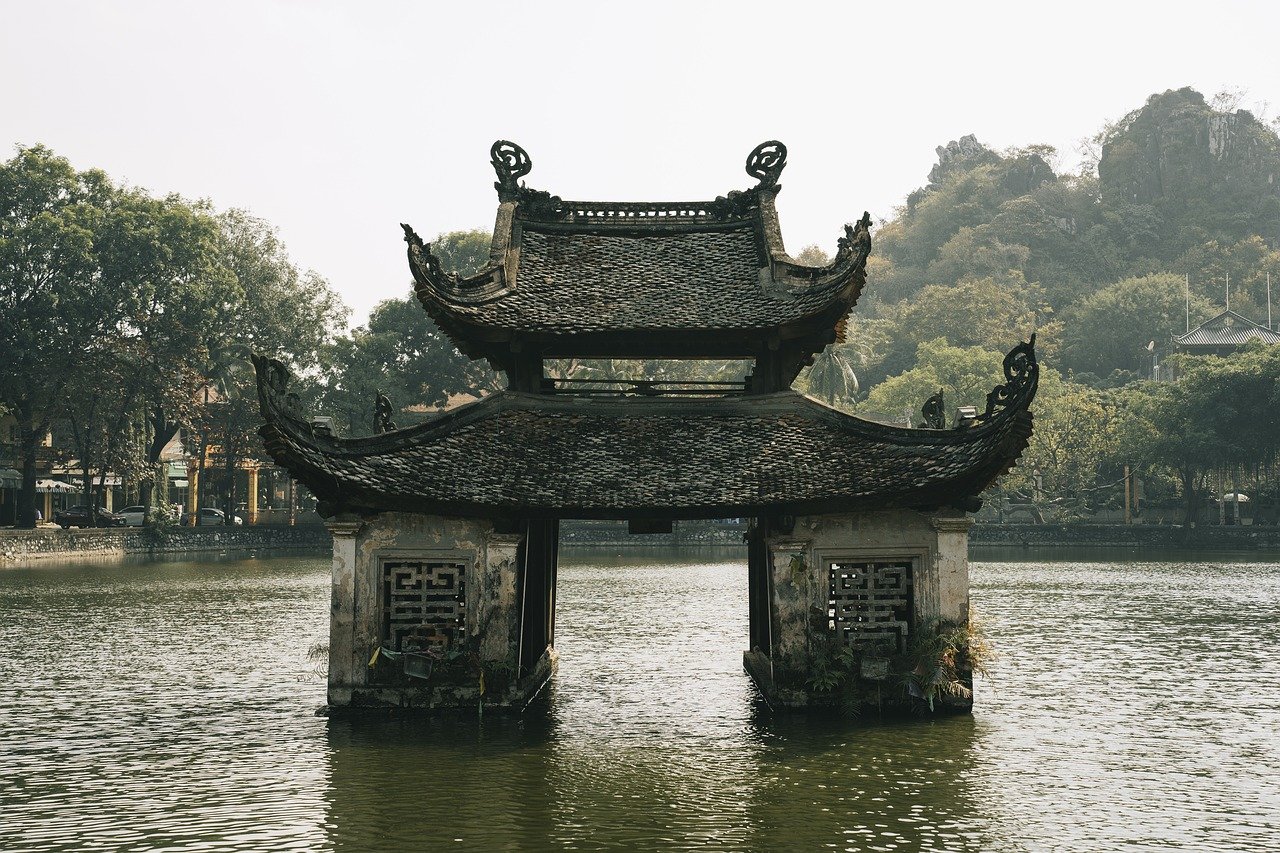
Lessons Learned and Unlearned
When delving into the aftermath of the Vietnam War, it becomes evident that there are valuable lessons to be learned and, unfortunately, some that remain unlearned. One of the key takeaways from this conflict is the recognition of the limitations of military power and the importance of understanding the sociopolitical landscape of a region before engaging in warfare. The Vietnam War highlighted the challenges of fighting a guerrilla war in unfamiliar terrain, showcasing the necessity of adapting strategies to unconventional warfare tactics.
Furthermore, the Vietnam War underscored the significance of clear objectives and exit strategies in military interventions. The lack of a defined end goal in the conflict led to prolonged engagement and escalating costs, both in terms of human lives and financial resources. This serves as a cautionary tale for future military endeavors, emphasizing the need for a comprehensive plan that considers the long-term consequences of intervention.
On the flip side, there are aspects of the Vietnam War that have been tragically unlearned. Despite the lessons of the past, conflicts continue to arise where similar mistakes are repeated. The tendency to underestimate the resolve and capabilities of local insurgent forces, the failure to win the hearts and minds of the civilian population, and the reliance on conventional military tactics in asymmetric warfare are all patterns that persist in contemporary conflicts.
Moreover, the ethical dilemmas faced during the Vietnam War, such as the use of chemical agents like Agent Orange and the targeting of civilian populations, continue to raise questions about the morality of modern warfare. These unresolved issues serve as reminders of the importance of upholding ethical standards and international laws in times of conflict, lessons that should have been internalized from the experiences of the Vietnam War.

Reconciliation and Healing
After the tumultuous years of conflict and division, the process of reconciliation and healing began in the aftermath of the Vietnam War. Both within Vietnam and among the veterans and communities affected by the war, efforts were made to mend the deep wounds left by the prolonged violence.
One significant aspect of reconciliation was the establishment of programs and initiatives aimed at supporting veterans in their physical and mental recovery. Many veterans faced challenges such as post-traumatic stress disorder (PTSD) and physical disabilities, requiring specialized care and support to reintegrate into society.
Moreover, reconciliation efforts extended to the diplomatic arena, with attempts to mend relations between former adversaries and promote mutual understanding. Diplomatic dialogues and initiatives sought to address the lingering animosities and pave the way for cooperation and reconciliation.
Within Vietnamese society, the process of healing involved acknowledging the pain and suffering endured during the war and honoring the memories of those who lost their lives. Memorials, museums, and commemorative events served as platforms for reflection and remembrance, fostering a sense of national unity and healing.
Additionally, grassroots initiatives and community projects played a crucial role in fostering reconciliation and healing at the local level. Through shared experiences, dialogue, and mutual support, individuals and communities sought to overcome the divisions and scars left by the war, building a foundation for a more harmonious future.
Frequently Asked Questions
- What were the main reasons behind the Vietnam War?
The Vietnam War was primarily fueled by a complex web of factors, including colonial legacies, Cold War tensions, and the desire for Vietnamese independence. The involvement of major global powers and ideological differences further escalated the conflict.
- Who were the key players in the Vietnam War?
The major participants in the Vietnam War included the United States, North Vietnam, South Vietnam, and the Viet Cong. Each group had distinct strategies and objectives, contributing to the intricate nature of the conflict.
- How did the Vietnam War impact Vietnamese society?
The Vietnam War had devastating consequences on Vietnamese society, leading to widespread destruction, displacement, and social upheaval. The civilian population in both North and South Vietnam bore the brunt of the conflict's effects.
- What was the significance of the American anti-war movement?
The anti-war movement in the United States played a crucial role in challenging government policies, sparking protests, draft resistance, and cultural shifts. It reflected a growing dissent against the war and influenced public opinion.
- How did media coverage impact perceptions of the Vietnam War?
The media played a significant role in shaping public perception of the Vietnam War through graphic images and investigative journalism. This coverage often fueled opposition and dissent, highlighting the realities of the conflict.
- What are some long-term legacies of the Vietnam War?
The Vietnam War left lasting impacts on foreign policy, veterans' experiences, and popular culture. Its effects continue to be felt in discussions on military strategy, intervention ethics, and the memory of the war.
- What lessons can be learned from the Vietnam War?
The Vietnam War offers insights into military strategy, diplomacy, and ethical dilemmas of intervention. It also sheds light on persistent myths and misconceptions that have shaped subsequent conflicts and policies.
- How has reconciliation and healing progressed after the Vietnam War?
Efforts towards reconciliation and healing have been ongoing post-Vietnam War, both within Vietnam and among affected communities. These initiatives aim to address the wounds of the past and promote understanding and peace.


